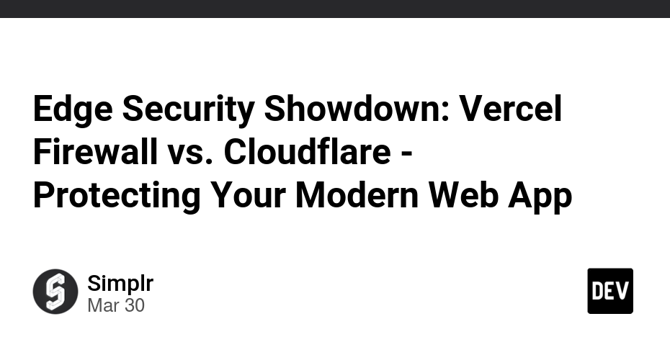Dev
3w
30

Image Credit: Dev
Edge Security Showdown: Vercel Firewall vs. Cloudflare - Protecting Your Modern Web App
- Both Vercel and Cloudflare offer robust edge security solutions, but with different approaches and features.
- Vercel Firewall provides integrated protection for applications hosted on Vercel, including managed WAF, DDoS mitigation, IP blocking, and more.
- Pros of Vercel Firewall include simplicity, seamless integration with Vercel, optimized performance, and unified workflow.
- Cons of Vercel Firewall include less configurability, Vercel-specific protection, limited advanced features, and cost implications.
- Cloudflare offers advanced WAF, enterprise-grade DDoS protection, global network, extensive blocking options, bot management, and detailed analytics.
- Pros of Cloudflare include unmatched DDoS protection, customizable WAF, platform agnostic solutions, feature richness, cost-effective tiers, and maturity.
- Cons of Cloudflare include complexity, potential latency, DNS management requirements, and possible conflicts when proxying with Vercel.
- Vercel advises against using Cloudflare's proxy due to potential caching issues, IP address obfuscation, feature impacts, SSL/TLS conflicts, performance interference, and debugging complexity.
- Vercel Firewall is suitable for Vercel users, while Cloudflare is recommended for advanced security needs, multi-cloud hosting, and cost considerations.
- Choose Vercel Firewall for integrated security and use Cloudflare for DNS management to avoid performance and feature conflicts.
- Select the tool that aligns best with your security requirements, technical expertise, and hosting environment for optimal protection.
Read Full Article
1 Like
For uninterrupted reading, download the app